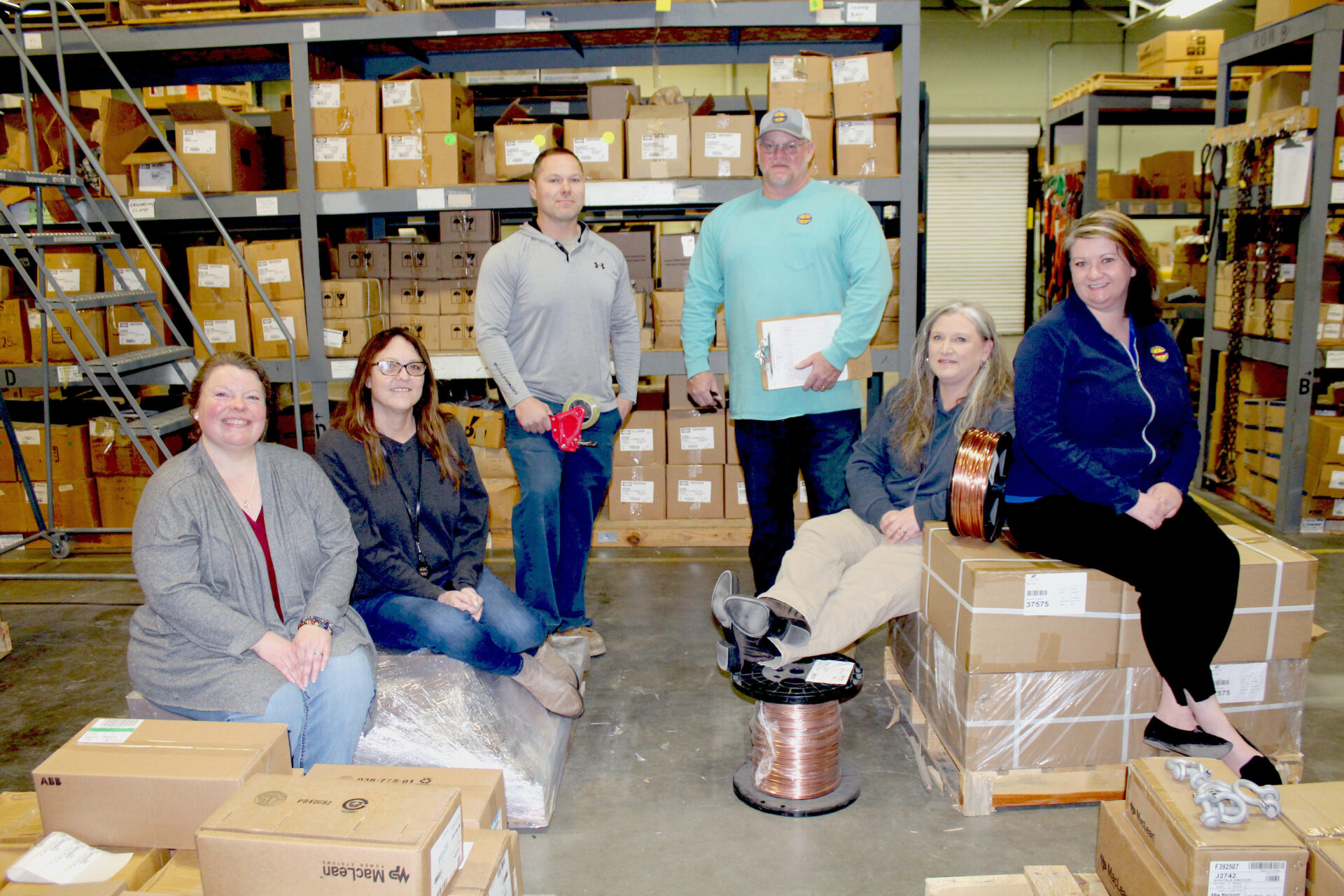The administration and financial services teams offer support for the entire Duck River Electric team, assist with strategic planning on many levels, and are responsible for all things financial, both receivables and payables.
Scott Spence, Jenny Armstrong, and Annette Williams make up the administration team. They work together and with the various departments and offices to lend support as needed to fulfill DREMC’s mission of providing safe, reliable electric service at the lowest possible cost.
Spence joined the team in 2019 and since has worked alongside the DREMC team to navigate through adverse events that affected the cooperative and its members: a 100-year pandemic, 40-year inflation, supply chain issues, and an 87-year electric load crisis that led to unprecedented rolling outages by the TVA.
The financial services team includes those who work in the accounting, billing, and warehouse departments. The team is led by James Bates, who joined the DREMC team in 2020.
“Our team manages $220 million in revenue as it comes in and goes out of the organization,” Bates said. He adds that for every dollar of electricity sold, 75 cents go back to TVA to pay for the power purchased by all members. The remaining 25 cents is used to cover DREMC’s operational expenses.
The purchasing and warehouse team is led by Julie Murdock and includes Holly Key, Tara Webb, Teresa Merlo, Rocky Lovvorn, Jeff Ray, and Ed Holt. Although their roles vary, they are responsible for purchasing and accounting for materials that range from transformers to bucket trucks to paper clips.
They oversee the headquarters warehouse inventory, which includes some $4 million of electric construction materials. Each week they order, stock, and deliver materials to DREMC’s other offices for new construction, system maintenance, and outage repairs.
Depending on the extent of the damage, major power outages have historically been restored and repairs made over several days. Even so, the work is just beginning for these teams. Invoices and work orders related to emergency work, such as materials, equipment, contracted labor, meals, and more continue to be assigned to the storm. Webb shares that when a disaster is declared and the Federal Emergency Management Agency assists, much detail is required to document storm-related expenses for DREMC, and the process could take up to two years for the cooperative to receive federal aid to be reimbursed for the emergency funds.
Other duties include processing work orders and producing reports for inventory and plant accounting for nine warehouses across DREMC’s system. According to Webb, over $350 million in total plant assets technically belong to the cooperative membership. These assets are also monitored by auditors, financial institutions, and the state for compliance. Tracking these assets is vital in being a good steward of the members’ investments in the Duck River system.





